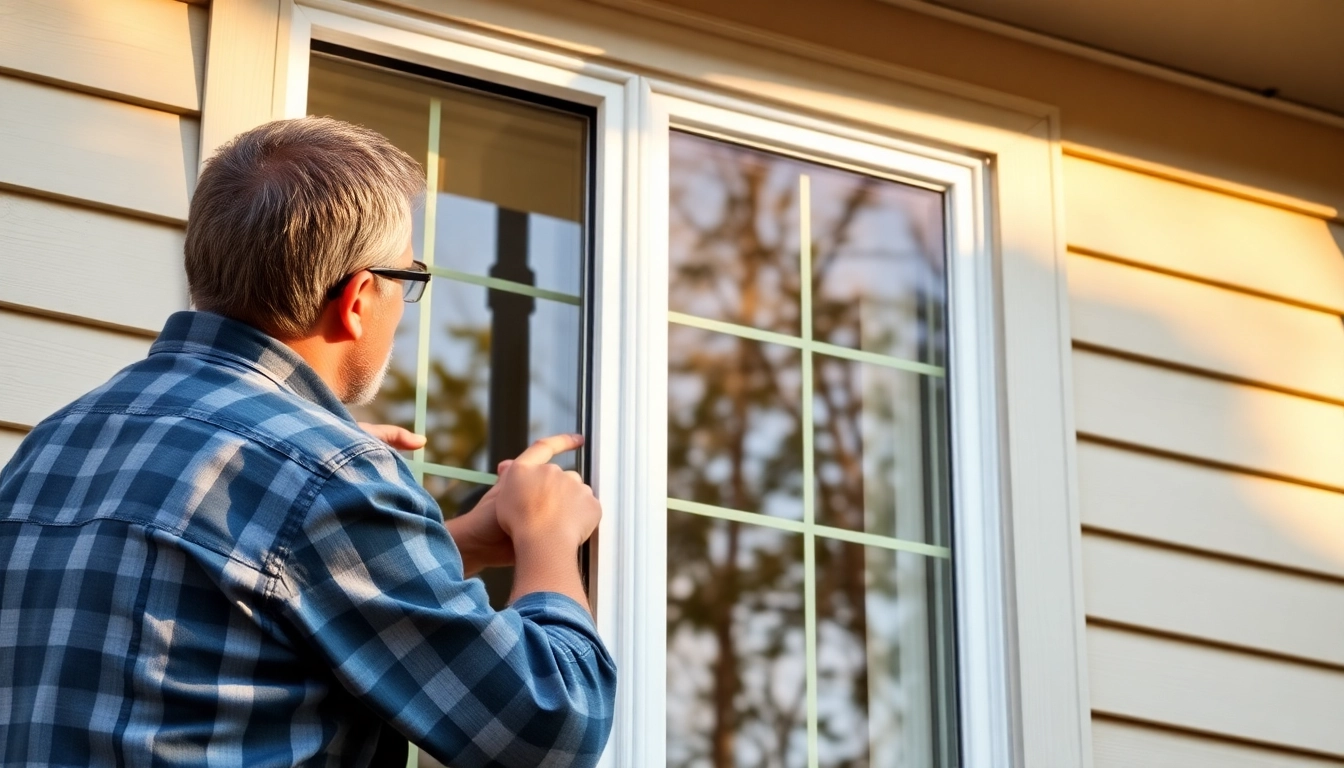Why Choosing a Local Roofing Company Is the Best Decision for Your Home
When it comes to maintaining, repairing, or replacing your roof, choosing the right service provider is critical to ensuring your home’s safety, durability, and aesthetic appeal. Opting for a local roofing company offers numerous advantages that often surpass the benefits of large national chains or generic contractors. Local companies possess a nuanced understanding of regional building codes, climate conditions, and community needs, enabling them to deliver tailored solutions and personalized service. Moreover, supporting local businesses fosters economic growth within your community, creates jobs, and ensures accountability through closer relationships. This comprehensive guide explores why a local roofing company should be your top choice, how they differentiate themselves in quality and trust, and tips on selecting the optimal local partner for your roofing needs.
1. The Benefits of Choosing Local Expertise
1.1 The Benefits of Choosing Local Expertise
Local roofing companies stand out primarily because of their deep-rooted expertise in regional roofing challenges. Many roofing issues are tied to specific environmental factors such as rainfall, wind patterns, snow load, and temperature variations. For example, a roofer operating in the UK must be well-versed in handling issues related to persistent moisture, moss growth, and varying insulation requirements. Local companies have accumulated years—sometimes decades—of experience working within these conditions, enabling them to recommend suitable materials and techniques that prolong your roof’s lifespan.
Additionally, local contractors are often more committed to quality because they depend on their reputation in the community. Their business success hinges on customer satisfaction and referrals, which encourages them to prioritize workmanship and customer service above all. Unlike distant national chains, they are readily available for ongoing maintenance, advice, and emergency repairs—ensuring peace of mind and continuity.
1.2 How Local Roofing Companies Ensure Quality and Trust
Trust is paramount when investing in your home’s roof. Local roofers typically build their reputation through word-of-mouth recommendations, verified reviews, and long-term community presence. They are more transparent, as their local reputation is directly linked to case outcomes and satisfied homeowners.
Many local companies hold certifications from reputable organizations like the National Federation of Roofing Contractors (NFRC) or similar industry bodies, ensuring adherence to safety standards and best practices. They also demonstrate a commitment to using high-quality materials and employing skilled tradespeople. Customer testimonials, portfolio case studies, and references further attest to their reliability.
1.3 Comparing Local vs. National Roofing Services
While national chains may offer lower initial prices due to economies of scale, they often lack personalized service and regional expertise. They might subcontract work, leading to inconsistency in quality and communication. Moreover, their focus may be more on quick turnaround and volume rather than long-term durability and customer satisfaction.
Conversely, local roofing companies dedicate themselves to each project, customizing solutions that fit your specific home and environment. They are more accessible for ongoing servicing and warranty claims, and their work often exceeds standards because they are invested directly in the community they serve.
2. Essential Roofing Services Provided by Your Local Company
2.1 Roof Repairs and Maintenance
Routine inspections and prompt repairs are fundamental to extending your roof’s longevity. Local roofers provide comprehensive repair services, from fixing leaks and replacing damaged shingles to addressing ventilation issues. They use diagnostic tools like moisture meters and thermal imaging to identify hidden problems before they escalate. Regular maintenance, including gutter cleaning, moss removal, and minor repairs, can prevent costly replacements down the line.
2.2 Installing New Roofs: Materials and Techniques
Whether building from scratch or replacing an existing roof, local companies excel in providing tailored solutions. They guide homeowners through selecting suitable materials—such as tiles, slates, asphalt shingles, or metal—and applying industry-best installation techniques. Proper installation ensures waterproofing, resistance to harsh weather, and energy efficiency. They also provide detailed project timelines, transparent quotes, and post-installation inspections to verify quality.
2.3 Gutter, Fascia, and Soffit Services
Often overlooked, the integrity of gutters, fascia, and soffits significantly impacts roof performance. Local contractors offer installation, repair, and maintenance of these components to prevent water ingress, wood rot, and pest intrusion. Modern materials like UPVC or aluminum provide durability with minimal maintenance, and proper installation ensures seamless integration with your roof system.
3. Selecting the Right Roofing Materials for Your Home
3.1 Popular Roofing Materials and Their Benefits
Choosing the appropriate roofing material is crucial for durability, appearance, and cost. Common options include:
- Asphalt Shingles: Cost-effective, versatile, and easy to install, suitable for a variety of aesthetic styles.
- Clay and Concrete Tiles: Long-lasting with excellent thermal insulation, ideal for traditional or Mediterranean-style homes.
- Slate: Premium, highly durable, and eco-friendly, offering a natural appearance with a lifespan of 75-100 years.
- Metal Roofing: Lightweight, fire-resistant, and energy-efficient, perfect for modern designs and challenging climates.
3.2 Eco-Friendly and Energy-Efficient Options
Sustainability is increasingly important. Options like recycled metal, solar-reflective tiles, and vegetated roofs can significantly reduce your carbon footprint. Insulation upgrades and reflective coatings improve energy efficiency, saving on heating and cooling costs while reducing environmental impact.
3.3 Cost Considerations and Longevity
Budgeting for a new roof involves balancing initial costs with lifespan and maintenance requirements. While higher-end materials like slate or metal have higher upfront costs, they generally offer superior longevity and lower maintenance over time. Local companies can provide detailed cost-benefit analyses tailored to your property.
4. How to Find and Vet Your Local Roofing Company
4.1 Certifications, Insurance, and Credentials
Ensuring your chosen contractor holds appropriate certifications such as NFRC membership, manufacturer accreditations, and industry awards guarantees quality and professionalism. Verify their insurance coverage—public liability and worker’s compensation—to protect against accidental damages or injuries during work.
4.2 Reading Reviews and Checking References
Scrutinize testimonials on platforms like TrustATrader, Checkatrade, or local review sites. Request references from past clients to assess their satisfaction level and view completed projects. Look for consistency in craftsmanship, timeliness, and customer service.
4.3 Requesting Quotes and Ensuring Transparency
Obtain detailed, written quotations that specify scope, materials, timeline, and payment terms. Be cautious of bids that are significantly lower than others, as they may indicate underqualified workers or subpar materials. Transparency is key; ask about warranties, post-installation support, and plans for unforeseen issues.
5. Maintaining Your Roof for Long-Term Durability
5.1 Routine Inspection Tips
Regular visual inspections—at least twice a year—help identify early signs of trouble. Check for missing or broken shingles, moss or algae growth, clogged gutters, and signs of water infiltration in the attic or ceiling. Using binoculars from the ground can assist without requiring a ladder, but professional inspections are recommended every few years for thorough assessment.
5.2 When to Schedule Professional Maintenance
Professional maintenance should be scheduled after severe weather events or annually to ensure all components remain in optimal condition. Local roofing companies can perform detailed inspections, clean gutters, repair minor damages, and replace worn materials—saving you money and prolonging your roof’s life.
5.3 Signs You Need Immediate Roof Repairs
Urgent issues include leaks, sagging sections, granular loss on shingles, fallen tiles, or persistent mold and water stains. Addressing these promptly prevents further damage, structural issues, and expensive repairs. Establishing a relationship with a trusted local roofing company ensures swift response times for emergencies.



